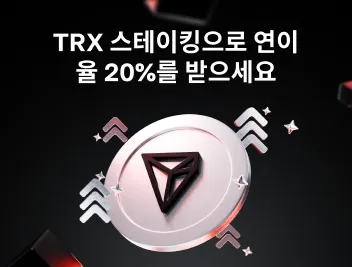
2026년 지불을 위한 최고의 암호화폐
목차
현재 암호화폐는 기존 금융 시스템에 대한 강력한 대안으로 떠오르고 있습니다. 블록체인 기술의 발전은 보안성, 효율성, 투명성을 갖춘 탈중앙화 금융(DeFi)의 시대를 열었습니다. 하지만 수천 개에 달하는 암호화폐 중 어떤 것이 결제에 가장 적합할까요? 지금부터 주요 후보들을 살펴보겠습니다.
결제 수단으로서의 암호화폐
암호화폐는 사용자가 금융 자산을 직접 통제할 수 있는 디지털 화폐입니다. 중앙은행이나 정부에 종속되지 않으며, 제3자의 개입 없이 안전하고 익명성 높은 거래가 가능합니다. 디지털 결제 방식이 점점 보편화되면서, 암호화폐는 글로벌 경제의 새로운 기준이 될 수 있습니다.
암호화폐 결제의 대표적인 장점은 낮은 수수료, 빠른 거래 속도, 블록체인을 통한 강화된 보안성입니다. 2025년 현재, 전 세계적으로 암호화폐 도입이 확대되며 빠르고 투명한 금융 거래 수단으로 자리잡고 있습니다.
암호화폐 결제의 주요 장점:
-
전 세계 어디서나 결제 수락 가능: 암호화폐는 국경을 초월해 사용 가능하며, 환율 걱정 없이 해외 결제가 가능합니다. 이는 글로벌 소비자와 온라인 사업자에게 특히 매력적인 옵션입니다.
-
투명성과 감사 가능성: 블록체인에 모든 거래 내역이 기록되어 거래 확인 및 추적이 용이합니다.
-
계좌 동결 위험 최소화: 중앙 통제 기관이 없기 때문에, 정부나 은행의 제재를 우회할 수 있습니다.
-
저비용, 고속 결제: 중개 은행 없이 직접 거래되므로, 수수료와 처리 시간이 크게 절감됩니다. 추가 수수료를 통해 거래 속도를 더욱 높일 수도 있습니다.
-
강화된 보안성: 강력한 암호화 기술로 사이버 공격 위험을 줄이고, 개인 정보를 보호합니다. 지갑 소유자의 프라이버시도 철저히 보장됩니다.
이처럼 다양한 장점 덕분에 특정 암호화폐들은 결제 수단으로 특히 주목받고 있습니다. 지금부터 비즈니스에 활용하기 좋은 암호화폐들을 소개합니다.
비즈니스용 결제에 적합한 최고의 암호화폐 목록
수천 종의 암호화폐 중에서 어떤 것을 선택해야 할지 고민된다면, Cryptomus 결제 게이트웨이가 좋은 출발점이 될 수 있습니다. 이 플랫폼은 신뢰도 높은 금융 도구, 사용자 친화적인 인터페이스, 다양한 암호화폐 지원으로 거래 프로세스를 간소화해 줍니다.
결제에 유용한 대표 암호화폐는 다음과 같습니다:
- USDT/USDC
- 솔라나 (SOL)
- 비트코인 (BTC)
- 라이트코인 (LTC)
- 이더리움 (ETH)
- 도지코인 (DOGE)
- 트론 (TRX)
각 코인마다 비즈니스에 도움이 되는 고유한 강점을 갖고 있습니다.
USDT 및 USDC
USDT (테더)와 USDC (USD 코인)은 대표적인 스테이블코인으로, 변동성이 낮아 결제용으로 적합합니다. 이들은 미국 달러와 1:1로 고정되어 있어 가격 급등락을 피할 수 있다는 것이 큰 장점입니다. 이는 특히 해외 송금이나 가격 안정성이 중요한 비즈니스에서 유리합니다.
두 스테이블코인은 이더리움(ERC-20), BNB 스마트체인(BEP-20) 등 여러 블록체인을 지원하므로 수수료가 가장 저렴한 네트워크를 선택해 전송할 수 있습니다. 예를 들어, 트론 네트워크에서 USDT를 전송하는 데 드는 비용은 1센트도 안 되며, 수 초 내에 거래가 완료됩니다. 이로 인해 마이크로페이먼트, 온라인 쇼핑, P2P 송금에 매우 적합합니다.
두 코인 모두 Cryptomus를 비롯한 대부분의 주요 플랫폼에서 지원되며, 유동성이 높고 자산 전환이 용이해 결제 수단으로 매우 유용합니다.
주요 장점
-
높은 보급률: 스테이블코인의 인기로 인해, 기업과 소비자 모두 쉽게 사용할 수 있습니다.
-
가격 안정성: USDT 및 USDC는 미 달러에 연동되어 있어 급격한 가격 변동이 없습니다.

솔라나 (SOL)
솔라나는 빠른 처리 속도와 낮은 거래 수수료 덕분에 결제용 블록체인 네트워크 중 가장 편리한 옵션 중 하나로 평가됩니다. PoS(Proof-of-Stake) 합의 메커니즘을 통해 초당 최대 65,000건의 거래를 처리할 수 있으며, 결제 승인 속도는 단 몇 분의 1초에 불과합니다. 동시에 평균 수수료가 1센트 미만으로 유지되어, SOL은 마이크로 결제나 국제 송금에 이상적입니다.
또한, 솔라나는 USDC, USDT와 같은 스테이블코인 거래에도 널리 사용되며, 달러 등가치 자산에 익숙한 기업과 사용자에게 실용적인 솔루션을 제공합니다. Solana Pay 생태계와 상인 도구를 통해 중개자 없이 직접 암호화폐 결제가 가능하며, 24/7 전 세계 송금을 최소 비용으로 지원합니다.
주요 장점:
- 빠른 처리 속도: 거래가 단 3–5초 만에 완료됩니다.
- 낮은 수수료: 0.000005 SOL (약 $0.000633).
비트코인 (Bitcoin, BTC)
최초이자 가장 잘 알려진 코인은 여전히 결제 수단으로 흔히 사용됩니다. 2024년에 15주년을 맞이했음에도 불구하고, 전문가들에 따르면 BTC는 아직 시장에서 완전히 받아들여지지 않았습니다. 기술 측면에서는 Bitcoin이 다른 많은 코인보다 부족할 수 있지만, 디지털 금으로 간주됩니다. 초보자나 유지 관리가 적은 투자를 찾는 사람들에게 이상적인 선택입니다.
비트코인의 명성과 널리 퍼진 채택은 소비자와 기업 모두에게 매력적인 선택이 됩니다. Tesla를 비롯한 주요 기업들이 투자하는 암호화폐이기도 합니다. 예를 들어, Microsoft는 Xbox 스토어 크레딧 결제 수단으로 BTC를 허용하며, Expedia와 Overstock.com도 마찬가지입니다.
그러나 주목할 점은 Bitcoin의 특성—거래 익명성과 최종 결제 확정—이 범죄자들이 플랫폼에서 불법 활동을 수행하는 데 이상적인 도구가 되었다는 점입니다. 비트코인은 다크웹에서 결제 수단으로 자주 사용되며, 이는 암호화폐의 “어두운 면”을 보여줍니다.
주요 장점:
- 널리 인정됨: 오프라인과 온라인을 포함한 다양한 기업이 비트코인을 결제 수단으로 받아들입니다.
- 유동성: 암호화폐의 인기와 자본화, 유동성을 높였습니다. 또한 비트코인 공급량(2100만 코인)은 희소성을 만들어 가치를 높이고, 디지털 자산 저장 수단으로서 선도적인 위치를 확보하여 인플레이션으로부터 보호합니다.
라이트코인 (Litecoin, LTC)
2011년에 비트코인의 “경량 버전”으로 만들어진 Litecoin은 일상 거래에 편리한 도구로 빠르게 명성을 얻었습니다. 비트코인의 “금”에 비해 “은”으로 불리며, 그럴 만한 이유가 있습니다. 프로젝트의 주요 목표는 암호화폐 결제를 더 빠르고, 접근 가능하며, 경제적으로 만드는 것이었습니다.
오늘날 LTC는 결제 수단으로 활발히 사용되고 있습니다. Dell, Newegg, Expedia, Overstock, TigerDirect와 같은 기업들이 이를 결제 수단으로 허용합니다.
주요 장점:
- 높은 거래 속도: 라이트코인의 블록 확인 과정은 약 2.5분밖에 걸리지 않습니다. 이로 인해 일상 구매 및 속도가 중요한 온라인 결제에 편리합니다.
- 낮은 수수료: 네트워크는 약 $0.3의 최소 수수료로 거래를 처리할 수 있습니다. 다만 네트워크 트래픽이 많을 경우 비용이 증가할 수 있습니다.
이더리움 (ETH)
이더리움은 비트코인 다음으로 널리 사용되는 암호화폐입니다. ETH는 거래소 대부분에서 유통되고 있으며, 유동성이 높아 결제에 적합합니다.
특히, 이더리움은 스마트 계약 기능을 통해 조건부 결제나 에스크로, 다중 서명을 지원함으로써 자산 보안을 강화합니다. 이더리움의 유연성과 확장성은 블록체인 기술을 비즈니스에 통합하고자 하는 기업에 매력적인 요소입니다.
주요 장점:
-
스마트 계약: 거래 자동화를 통해 효율성 및 비용 절감 가능
-
강력한 개발 생태계: 지속적인 개발과 혁신을 이끄는 커뮤니티
-
광범위한 수용성: 다양한 기업 및 웹사이트에서 이더리움 결제를 지원
다음은 요청하신 텍스트의 한국어 번역입니다. 원문의 서식을 그대로 유지하며, 암호화폐에 익숙한 한국어 사용자에게 자연스럽고 전문적으로 들리도록 번역했습니다. 모든 링크와 이미지도 그대로 유지됩니다.
Dogecoin (DOGE)
Dogecoin (DOGE)은 현재 가장 인기 있는 밈코인 중 하나입니다. 본래 두 명의 소프트웨어 엔지니어가 장난 삼아 만든 이 프로젝트는 시간이 지나 커뮤니티에 의해 운영되기 시작했으며, 이 커뮤니티는 지금도 DOGE의 가장 강력한 동력으로 작용합니다. 도지코인의 가장 유명한 지지자 중 한 명은 일론 머스크(Elon Musk)로, 그의 트윗은 DOGE의 시장 움직임에 큰 영향을 주며 종종 급격한 가격 상승과 거래량 증가를 일으키곤 합니다.
2025년 기준으로 도지코인은 결제 수단으로 매우 훌륭한 선택입니다. 수수료는 1센트 미만이며, 초당 33건의 트랜잭션(TPS)을 처리할 수 있어 빠른 거래가 가능합니다. 지속적인 수요와 대중적인 인기 덕분에 DOGE는 높은 유동성을 유지하고 있으며, 이는 거래소에서 매수·매도 상대방을 빠르게 찾을 수 있다는 것을 의미합니다.
주요 장점
-
강력한 커뮤니티: 팬들과 유명 인사의 활발한 지지 덕분에, 밈코인으로서의 생명력을 유지할 수 있습니다.
-
저렴하고 빠른 거래: 도지코인은 소액 이체, 기부, 팁 전송 등에 적합합니다.
트론 (Tron)
Tron (TRX)은 2017년에 엔터테인먼트 콘텐츠 유통 플랫폼으로 출시된 암호화폐입니다. 현재는 자체 블록체인을 갖춘 강력한 프로젝트로 성장했으며, 낮은 수수료와 빠른 거래 확인 속도(2~3초)로 유명합니다.
트론만의 독특한 이점 중 하나는 매일 지급되는 TRX 보상으로, 이 보상은 거래 수수료를 충당하는 데 사용할 수 있습니다. 일반적으로 하루에 1~2회 거래할 수 있을 만큼의 보너스가 지급되며, 그렇지 않더라도 단일 거래 수수료는 단 0.1 TRX, 약 $0.022에 불과합니다.
주요 장점
-
높은 처리 속도: 초당 2,000건(TPS)의 거래 처리 가능
-
낮은 수수료: 0.1 TRX (약 $0.022) 또는 무료
-
변동성 완화: 다른 알트코인 대비 더 높은 가격 안정성 제공
이러한 디지털 자산들은 각각의 특성과 장점을 지니고 있어, 새로운 재무 전략을 모색하는 비즈니스에 큰 도움이 될 수 있습니다. Cryptomus를 활용하면 이 암호화폐들을 손쉽게 결제 수단으로 통합할 수 있습니다. Cryptomus는 Tilda, Shopify, WooCommerce 등 다양한 플랫폼과 협업 중이며, e커머스 플러그인을 통해 여러분의 웹사이트나 플랫폼, 비즈니스에 간단히 암호화폐 결제 시스템을 도입할 수 있습니다. 자세한 내용은 가이드를 참고하시고, 궁금한 점이 있다면 언제든지 고객 지원팀에 문의하세요.
암호화폐를 통한 온라인 결제는 안전하고 간편하게 이루어질 수 있습니다. 다만 보안을 항상 염두에 두고, 암호화폐 거래 시 자주 발생하는 실수를 피하도록 주의하세요.
읽어주셔서 감사합니다! 암호화폐 결제에 대한 여러분의 생각을 댓글로 남겨주세요.
암호화폐 여정을 간단하게
암호화폐를 보관, 송금, 수락, 스테이킹 또는 거래하고 싶나요? Cryptomus를 사용하면 모두 가능합니다. 간편한 도구로 가입하고 암호화폐 자금을 관리하세요.
시작하다









